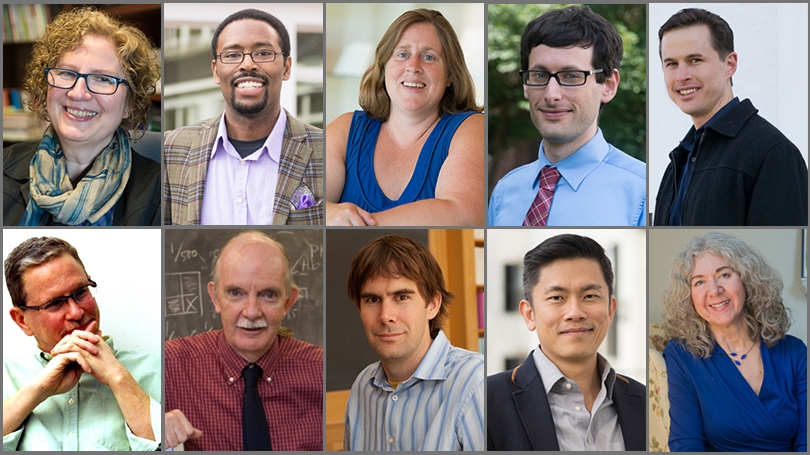
Professors recognized for their work are, top row, from left: Tania Convertini, Craig Sutton, Natasha Grotz, Udi Greenberg, and Brendan Nyhan; bottom row, from left: James Dorsey, Lee Witters, Bradley Duchaine, Eng-Beng Lim, and Cleopatra Mathis.
Professors receive awards from the Faculty of Arts and Sciences this year.
The Faculty of Arts and Sciences has recognized 10 members of the faculty for their outstanding work as scholars, teachers, and mentors in 2016.
“These colleagues are role models for all of us who strive to excel at our scholarship and share the love of what we do with undergraduates in and out of the classroom,” says Dean of the Faculty Michael Mastanduno.
The awardees are selected by the deans, with the exception of the Jerome Goldstein Award for Distinguished Teaching, which is selected by the vote of members of the graduating class.
The awardees:
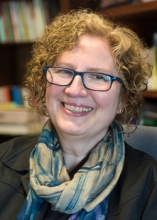
I enjoy seeing my students develop a passion for Italian. In my classes, students are partners in the teaching and learning process—I am not “covering” the material, but helping my students discover it. In spring 2016, for the second time, I ran the Italian Fun project, in which students in “Italian 3” shared their knowledge of Italian with members of the community who were interested in learning it. Not only did the project offer students the opportunity to take their learning experience outside of the classroom, it also made them look at language learning from a different angle and changed the way they looked at themselves as learners.
My current book project explores the work of the Italian pedagogue Alberto Manzi, who in the 1960s conducted a successful television show, Non è mai troppo tardi, to fight illiteracy. Together with the Media Ecology Project at Dartmouth and the Centro Manzi in Bologna, I am developing an interdisciplinary and collaborative project for the study of Manzi’s work. I am fascinated by the humanistic principles that guided Manzi’s pedagogical undertakings, and by the lesson he can still teach us in the 21st century.
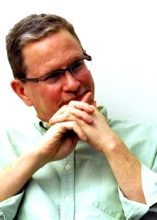
I’ve worked on the ways that literature and literary criticism interfaced with the state in wartime Japan, and currently I’m working on a book about the student movements of Japan’s 1960s, focusing on the politically motivated folk song community of the time. Inspired by Bob Dylan and Pete Seeger, Japanese singer/activists formed a vibrant anti-establishment community in which ideological folk songs thrived completely outside the commercial music industry and were an integral part of anti-Vietnam War demonstrations and labor union rallies. I’m hoping to figure out what makes such communities arise, what sustains them, and what they accomplish.
The Japan Language Study Abroad is the defining element of my professional career at Dartmouth. I am currently directing my 15th program. It is a rewarding pedagogical experience because it is utterly experiential learning. Students are using their language and intercultural skills daily with their Japanese host families and peers at our host university. This program gives students experience living in a world that operates according to a different cultural logic. With a little coaching, students can come to recognize the implicit rules and values that underpin those differences. These encounters make students sensitive to, and more tolerant of, the differences between all subcultures and communities.
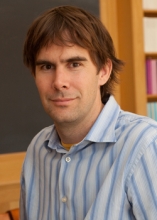
I’m interested in the neurocognitive mechanisms that allow us to interpret visual stimuli like faces, objects, and bodies—and especially interested in understanding the organization of these mechanisms prior to visual experience. My lab investigates people with impaired face processing (prosopagnosia) and other types of recognition deficits using behavioral measures of visual recognition and neuroimaging. Focusing on neuropsychological deficits can provide deep insight into the organization of our brains. For example, seeing that someone can’t recognize a face but can recognize other types of stimuli is clear evidence that face recognition depends on different processes than other types of visual recognition.
I most enjoy teaching when it leads me to a better understanding of phenomena I’m interested in. The clarity required for effective introductory lectures can force me to sharpen hazy thoughts about a topic, and covering work from other labs in upper-division classes forces me to read papers and think about approaches that spark new ideas for my lab’s research. I try to help students move beyond folk psychological concepts to a framework that views these processes and their development in a more mechanistic manner. In upper-division classes, discussions cover studies and concepts that are challenging for many undergrads, but most students here at Dartmouth rise to the challenge.
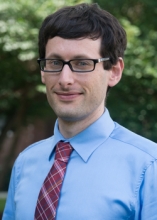
My work explores modern European thought and politics. Broadly speaking, I’m interested in the role of ideas in shaping institutions and policies, both in Europe’s interactions with the world and at home. In my current work, I investigate how Europe’s shifting position in the world in the 20th century, from empire building to decolonization, influenced its religious culture.
Teaching is one of my greatest joys, and I feel fortunate for the opportunity to share my passion with Dartmouth’s excellent students. Whether we discuss Marxist thought, German imperialism, or modern feminist action, I find the openness, energy, and thoughtfulness that students bring to the classroom to be infectious. Ultimately, the purpose of studying history is to understand other people with other backgrounds, experiences, and assumptions and there’s no better way than doing so together.
Senior Lecturer of Biological Sciences
Dean of Faculty Teaching Award

What I love about teaching is the privilege to impact students during a critical time in their lives. I have been able to teach a broad range of courses within the department, which has allowed me to interact with students in non-major courses as well as introductory, intermediate, and advanced major courses. Although part of any of these courses has to do with teaching the biology—which involves learning facts—the more exciting part has always been helping students develop their own thinking skills and improving the ways in which they communicate their knowledge and thoughts.
Though I admire students whose life goals are very clear, I have a special appreciation for students who are examining what will ultimately be fulfilling. As a former Dartmouth undergraduate who did not know what I wanted to do after college, I try to create an environment where exploring the options is rewarding and exciting. Even for students who ultimately know what they want their final profession to be, we often discuss the specific types of answers or interactions or lifestyle they may be seeking. I love these discussions with students.
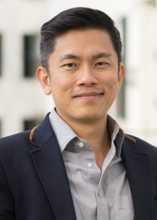
My current research examines the queerness of megastructure and performance using the global university, postcolonial park, and transnational theater as key sites, and the concept of “ethno-cuties” in visual culture, from photography in the colonial field to K-pop, BL, and manga. I’m currently teaching the Orlando Syllabus, a course addressing the emergence of “toxic masculinity,” mass violence, racism, and homophobia in the aftermath of the shootings in Orlando, Fla.
My students come from diverse backgrounds, and I love working with them. They are, like the hundreds of students who take Women’s, Gender, and Sexuality courses, often invested in or curious about the intersectionality of race, gender, sexuality, and class in systemic formations that affect our everyday lives in the U.S. and transnationally. I have been so impressed with the range of socially conscious, nonconforming, genderqueer, and progressive thinking that the students bring to my classes, and I find myself constantly updating my pedagogy to keep up with their energy and inquiry. Our conversations take us across interdisciplinary and international frameworks that are insistently comparative, postcolonial, queer, and anti-racist.
The greatest reward for my teaching is seeing students develop their own vocabularies of resistance, intervention, and illumination. They make me reflect on my own work in ways that push for worlds as yet unseen and unavailable to those who do not fit in official borders and proper identities and desires.
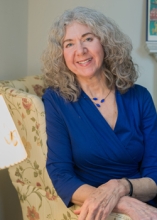
While Mathis is at home nursing an injury, others have jumped in with accolades, including her colleague Thomas O’Malley, associate professor of English and director of creative writing. “Those who know Cleopatra know her spirit, and know she is a force of nature, driven by her love for teaching. It was her passion and will that built our creative writing program from the ground up with limited funding and limited political resources. Hundreds of students have been shaped by her care. I cannot count the number of students who return annually to sing her praises, praise that speaks to the profound impact she's had on both students and us,” O’Malley said at a recent faculty meeting.
Mathis herself has said, “Retirement does not signal a great deal of change for people like me. I live in books and will continue to be a person who lives in books. The thing I will miss the most, however, is teaching undergraduates.”
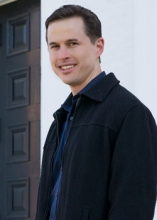
I’m fascinated by why facts often seem to matter so little in debates over controversial issues. My primary research focus is on understanding why misperceptions in politics and health are often so difficult to correct. I teach two classes in this area: a mid-level course on “Political Misinformation and Conspiracy Theories” and a seminar called “Experiments in Politics,” where I supervise students as they conduct research on misperceptions. I’m also passionate about the value of quantitative research in the social sciences, and teach both our “Quantitative Political Analysis” class in the government department and a class on “The Presidency,” where we primarily read quantitative research.
I believe students learn best when they are actively engaged, so I structure my classes as a blend of lecture, discussion, and active learning, and frequently highlight connections to current events. My goal is to develop students’ analytical skills. I challenge them to critique the assumptions, theories, and claims that we study, draw connections between topics, and apply theory to new contexts.
I’ve also worked extensively with a number of outstanding undergraduates on most of the research I’ve conducted since I came to Dartmouth in 2011. Students have contributed a tremendous amount to my research and made it more fun and interesting as well. It’s one of the best parts of being a faculty member here.
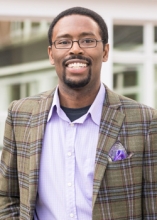
A question that intrigues me is, can you hear the shape of a drum? That is, suppose I have a drum and you have perfect pitch, to what extent would it be possible for you to build a drum geometrically identical to mine based solely on the way it sounds? Spectral geometry is the study of the relationship between the geometry of a Riemannian manifold (the “drum”) and the spectrum of its associated Laplace operator (the “sound”). A current fascination of mine, motivated by intuition drawn from quantum mechanics and geometric optics, is exploring whether the length spectrum of especially “nice” Riemannian manifolds can be “heard.”
My passion for geometry is driven in part by the intrinsic beauty of the subject and its connections with physics and other disciplines. It’s satisfying to prove a mathematically pleasing statement and reveal hidden structure. There is a commonality with the feeling I get from listening to or playing a beautiful piece of music.
My favorite moments as a teacher are those when someone begins to gain a fuller appreciation for the types of questions mathematicians grapple with. Mathematics is something I always enjoyed studying, but it wasn’t until I had the chance to do research as an undergraduate that it dawned on me that I could pursue it as a career.
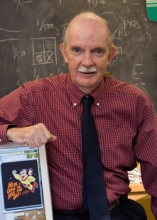
My longstanding interests are in endocrinology and metabolism, with a focus on lipid metabolism, actions of the hormone, insulin, and how cells sense and adjust their energy content. These areas inform at a molecular level questions ranging from an understanding of diabetes mellitus and obesity to how muscles and even cancer cells meet their energy needs.
In presenting courses in human biology, I draw on my 47-year career as a physician, biochemist, and teacher of students at many levels. These perspectives, along with my interests in the arts, humanities, and social sciences, blend to provide a wide portrait of the challenges of a human life. I see myself not as a teacher, but as a learner with students, looking through a window with them at the wonder of human biology and helping them learn how to learn. My hope is that they will, in the future, love and live these questions. I am always inspired by Dartmouth students (to paraphrase Louis Pasteur) with two feelings, the first being tenderness for who they are now, and the second respect for who they will become.